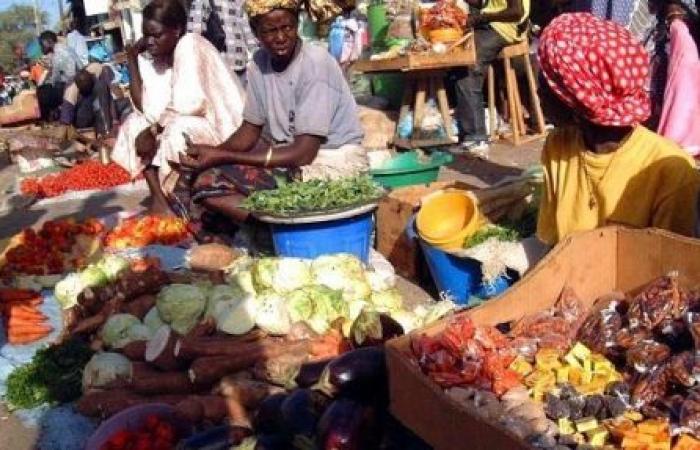(Agence Ecofin) – Inflation fell in Burkina Faso, Benin, Niger, Ivory Coast, Togo and Mali. However, it accelerated in Guinea-Bissau and remained stable in Senegal.
The inflation rate fell by 0.9 percentage points, from 3.4% in October to 2.5% in November 2024 within the West African Economic and Monetary Union (UEMOA), thus falling for the second consecutive time since the rate of 3.6% recorded in September. This is what the monthly statistics bulletin of the Central Bank of West African States (BCEAO) indicates.
According to the organization, the drop in inflation is mainly explained by the reduction in food prices, the overall impact of which on inflation fell from 2.1 percentage points in October 2024 to 1.5 points. in November 2024. “ This development is also driven by the slowdown noted in the progression of the “housing” component (+2.9% compared to +3.2% in October) “, we read in the document.
Furthermore, underlying inflation, excluding the prices of fresh products and energy, also fell, from 2.3% in October to 1.8% in November 2024, notes the BCEAO.
A drop in inflation was noted in six countries in the zone, namely: Benin, Burkina Faso, Ivory Coast, Mali, Niger and Togo, unlike Guinea-Bissau where it increased and in Senegal where it remained stable.
The inflation rate thus returns to the target range of 1% to 3% defined by the BCEAO, after seven consecutive months beyond the set objective. For the whole of 2024, average inflation is projected at 3.6% compared to 3.7% for 2023. However, forecasts for 2025 are on the rise, according to the BCEAO, due to insecurity in certain countries, poor climatic conditions affecting agriculture, and geopolitical and commercial tensions.
Lydie Mobio (Intern)
Edited by MF Vahid Codjia






